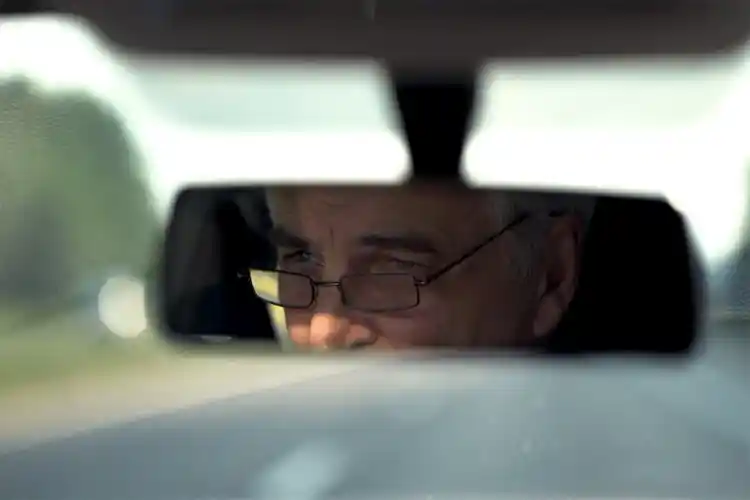Safety and Dementia-Related Psychosis

Hide Video Transcript
Video Transcript
[MUSIC PLAYING]
[MUSIC PLAYING]
Something that I do tell all the families I work with and my training is you have to talk about weapons in the home. So you don't want to wait for the person to actually develop a psychotic episode and become delusional, paranoid, and have access to a gun, and then see the neighbor walking up the street and thinking that it's somebody that's coming to attack them, or something and have a really bad incident. So definitely make sure that all the weapons are out of the house or locked.
[MUSIC PLAYING]
To avoid wandering-- like putting alarms in the doors. So if they leave in the middle of the night, you'll hear the chime. They're walking out in through the backyard for example, or something like that, that you can avoid that. Or locking the doors, of course-- locking the doors in a way that they also can't lock themselves in. They're feeling paranoid that somebody is coming in the house. And the caregiver goes outside to take out the trash-- making sure that they can't lock you out.
[MUSIC PLAYING]
Keeping clutter away, and having organized, well-lit spaces. If there's a lot of shadows, and it's kind of dark and gloomy, then they can, for example, see the coat rack and think that that's a person instead. Or it might be more confusing to walk from one room to the other when it's not well lit.
[MUSIC PLAYING]
You talked with the provider-- at what point should a caregiver take the control of medications. And depending on what the triggers are for the patient, should this medications be put enough in a safe place where they can't get to them? Because it could happen that the person with dementia becomes paranoid that somebody's stealing their medications.
So they grab the medications, and they hide them and they stash them away somewhere. Because they don't want somebody coming to the house and stealing their medications. And then the caregiver comes to give them their insulin, and they can't find it. So like I said before, assessing the trigger to make those modifications in the environment.
[MUSIC PLAYING]
Don't overestimate how much you can do or underestimate how strong they can be. So always have, in the back of your mind, a plan B. If this is happening quite often, what should I do? Should I call my provider? Should I engage more people in the caregiving of this person?
I always feel caregivers, the psychotic symptoms of dementia can take quite a toll on caregivers. So it's important that even at the moment when this start happening, the caregiver might think that they're OK, that they can handle it, and that they're able to manage. That's what you might be thinking now and in the next few months. But eventually if the symptoms continue to evolve, it might eventually just trigger a lot of anxiety and stress on the caregiver. So always have a plan B of if you need to step away or you need to take a break, who could you call.
PATRICIA ANDREWS
People with dementia-- their families will eventually talk at some point with their health care providers about driving and when they need to stop driving. So if a person is going through a psychotic episode, making sure that all the car keys are put away. [MUSIC PLAYING]
Something that I do tell all the families I work with and my training is you have to talk about weapons in the home. So you don't want to wait for the person to actually develop a psychotic episode and become delusional, paranoid, and have access to a gun, and then see the neighbor walking up the street and thinking that it's somebody that's coming to attack them, or something and have a really bad incident. So definitely make sure that all the weapons are out of the house or locked.
[MUSIC PLAYING]
To avoid wandering-- like putting alarms in the doors. So if they leave in the middle of the night, you'll hear the chime. They're walking out in through the backyard for example, or something like that, that you can avoid that. Or locking the doors, of course-- locking the doors in a way that they also can't lock themselves in. They're feeling paranoid that somebody is coming in the house. And the caregiver goes outside to take out the trash-- making sure that they can't lock you out.
[MUSIC PLAYING]
Keeping clutter away, and having organized, well-lit spaces. If there's a lot of shadows, and it's kind of dark and gloomy, then they can, for example, see the coat rack and think that that's a person instead. Or it might be more confusing to walk from one room to the other when it's not well lit.
[MUSIC PLAYING]
You talked with the provider-- at what point should a caregiver take the control of medications. And depending on what the triggers are for the patient, should this medications be put enough in a safe place where they can't get to them? Because it could happen that the person with dementia becomes paranoid that somebody's stealing their medications.
So they grab the medications, and they hide them and they stash them away somewhere. Because they don't want somebody coming to the house and stealing their medications. And then the caregiver comes to give them their insulin, and they can't find it. So like I said before, assessing the trigger to make those modifications in the environment.
[MUSIC PLAYING]
Don't overestimate how much you can do or underestimate how strong they can be. So always have, in the back of your mind, a plan B. If this is happening quite often, what should I do? Should I call my provider? Should I engage more people in the caregiving of this person?
I always feel caregivers, the psychotic symptoms of dementia can take quite a toll on caregivers. So it's important that even at the moment when this start happening, the caregiver might think that they're OK, that they can handle it, and that they're able to manage. That's what you might be thinking now and in the next few months. But eventually if the symptoms continue to evolve, it might eventually just trigger a lot of anxiety and stress on the caregiver. So always have a plan B of if you need to step away or you need to take a break, who could you call.
